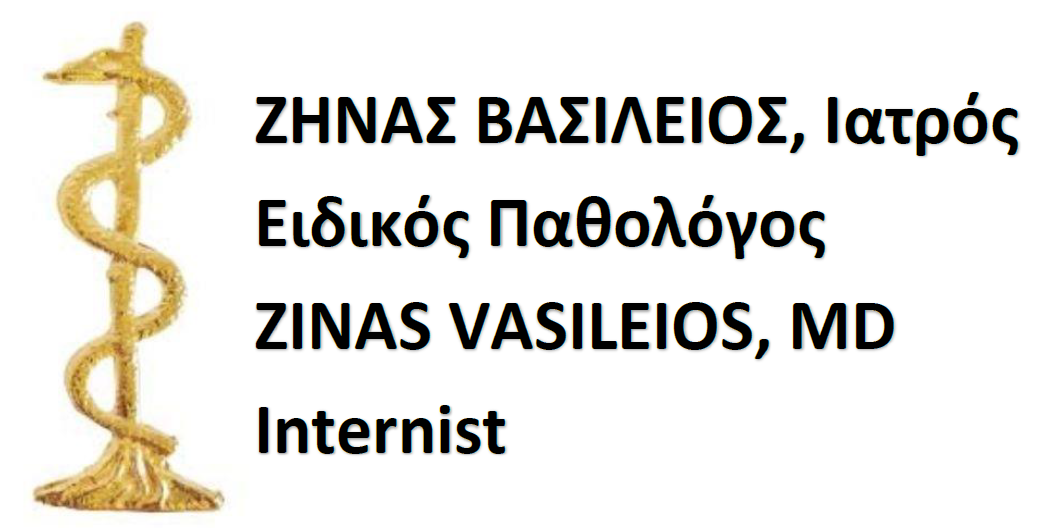1 - BRONCHIAL ASTHMA AND HOMEOPATHY
Looking for a more stable solution with an alternative approach

Dear friends, bronchial asthma is a chronic disease that affects the functionality and quality of life of more than three hundred million people worldwide (an estimated 7-10% of the population and much more in the “developed” world). This disease is a complex condition related to factors mainly of an allergic nature but also others such as heredity, respiratory infections (e.g., colds, etc.), weather conditions, extreme temperatures or changes, intense physical exercise, air pollution, smoking, alcohol, obesity and even the mental state (intense stress or sadness, etc.) or even others unknown. Asthma can be mild to severe with exacerbations alternating with remissions and sometimes (not often) dangerous attacks. In essence, it is an inflammation of the respiratory tract with constriction and narrowing of the bronchi and symptoms such as: respiratory wheezing (“whistling”), cough, shortness of breath, tightness or pain in the chest, “panting” and easy fatigue, etc.. The disease also affects many children (childhood asthma), unfortunately in increasing numbers in recent years. In a percentage of cases of childhood asthma, the symptoms may gradually subside as they get older (but not in all children and not suddenly in a crisis). Often, other allergic conditions such as rhinitis and conjunctivitis can coexist with asthma (discussed in another article). The diagnosis is based on the history, medical assessment and various tests (spirometry, flow measurement, etc.).

The conventional medical treatment of the disease is mainly based on the use of bronchodilators and corticosteroids (cortisone) in exacerbations and some asthma prophylactics (egg montelukast, etc.) in remissions. The above-mentioned treatments have helped a lot in the management of the disease, especially in acute attacks, with the main disadvantage (apart from any side effects) that it is very difficult to achieve a permanent remission of the disease because these are drugs that suppress the symptoms but not the basic sensitivity of the human body (over reaction to the abovementioned factors).
Homeopathy has given excellent results in many cases of bronchial asthma, in adults and children, leading to either greatly reduced symptoms with minimal use of chemical drugs or long-term complete remission without any use of drugs (chemical or homeopathic). Homeopathic treatment works in a natural and gentle way, without side effects, restoring and mobilizing the body’s own self-balancing mechanisms with the aim not only to relieve temporarily some symptoms but to restore health in a permanent way. Homeopathy is a holistic therapeutic approach and that’s why the doctor, in order to make the choice of the appropriate homeopathic medicine in a case of asthma, he will take into account not only the data concerning the specific disease (history, symptoms, tests, etc.) but also some other health issues, that concern the patient. In addition, as in the context of a homeopathic treatment there is a general improvement at many levels of the human organism (physical and mental), there is a chance that there will be an improvement in other issues along with what the patient came for (egg can be cured headaches or phobias together with bronchial asthma). We emphasize that in cases of very serious asthmatic attacks (not frequent) with severe and threatening symptoms, the patient should immediately receive the drug treatment recommended by the pulmonologist and seek, as quickly as possible, treatment at the emergencies of an on-call hospital. It is clear that the cooperation of all asthmatic patients with the pulmonologist is essential for monitoring their progress and related tests.

We will say, once again, that homeopathy is not a “panacea”, it has limits and does not cure everything and always. But it has offered very good results, without risks, to many millions of people worldwide who have trusted it to manage their health.
Vasilios Zinas, MD Internist – homeopathic treatment
2 - SPASTIC COLITIS (“IRRITABLE BOWEL SYNDROME”) WITH CHRONIC DIARRHEA OR CONSTIPATION AND HOMEOPATHY
Chronic conditions affecting quality of life and an alternative but effective therapeutic approach

Dear Friends, Spastic Colitis or “Irritable Bowel Syndrome” represents a very unpleasant condition that has afflicted millions of people around the world (15% to 45% of the population!). It is a functional disorder (of the motility) of the intestine with very annoying and persistent symptoms such as: pain and cramps in the abdomen (often after eating) sometimes with reflection in the waist, bloating and/or strong gas, diarrhea or constipation or alternations of these, feeling full, nausea, etc. This condition seems to have a strong psychosomatic dimension presenting crises after strong emotional stress but it is also influenced by many other factors such as heredity, diet, some post-infectious effects (egg. after a gastroenteritis), possible disturbance of the normal flora of the gut (the “good” micro-organisms that normally exist there), use of certain chemical drugs, hormonal fluctuations related to the female period and others. However, the exact causal mechanism remains unknown.
There is no specific test that proves the existence of spastic colitis or irritable bowel syndrome, but the diagnosis is obtained after excluding other diseases through a careful investigation by the gastroenterologist or pathologist and by doing the necessary imaging and laboratory tests.
The role that nutrition plays in the issue of irritable bowel is often “strange”. The general rule is that in a “problem-free” (in non-acute phase) gut, a high-fiber diet with whole grains, fruits and vegetables is favorable for its well-being, while in an irritated gut in crisis, a “low-residue” diet is preferred (consisting mainly of easily digestible carbohydrates and proteins with a low percentage of vegetable fiber) low in animal fat and also fresh dairy products (e.g., milk, yogurt, etc.) are completely avoided. The gut can also be aggravated by several other foods such as various drinks (alcoholic and soft drinks), spices, artificial sweeteners and preservatives, chocolate, etc. Of course, all this is not absolute because every person is a unique case and the previous rules do not always apply. Thus, it is important for the patient to observe how his own intestine reacts to each type and amount of food and adapt accordingly. We must emphasize that in reality the diet does not create the problem but simply aggravates it.
The main medical treatment for irritable bowel syndrome (spastic colitis) is based on antispasmodics and analgesics for abdominal pain, anti-constipation preparations, antidiarrheals, probiotics and even antibiotics or antidepressants! These drugs can help in some cases, but they also present important problems, the main one (besides any side effects) is that their action is usually temporary and they rarely manage to effectively solve the problem because they do not affect the central causal mechanism.
Homeopathy is an alternative method of treatment that, in a large number of cases, has given excellent results! The homeopathic medicine acts in a mild natural way, without side effects, activating the body’s own self-healing mechanisms. This leads to the restoration of homeostasis resulting in a high percentage of complete and stable therapeutic effect. Homeopathy, due to its holistic nature, looks at human health as a whole and takes into account all other possible physical problems of the patient and especially his mental state (which can strongly affect his intestinal function). Therefore, in the course of the treatment, other health issues, physical or mental, in addition to the intestine for which the patient came in, may improve significantly. Of course, we emphasize, once again, that Homeopathy is not a “panacea” and does not cure everything, but it is always a very valuable method of treatment with high success rates, even in difficult cases (that have not responded to other interventions), and above all with absolute safety for the patient.
Vasilios Zinas, MD Internist – homeopathic treatment
3 - CHRONIC ALLERGIC RHINITIS OR CONJUCTIVITIS AND HOMEOPATHY
Persistent bothersome symptoms and a different treatment

Dear friends, allergic symptoms in the upper respiratory tract and eyes are a chronic affliction that torments many millions of people around the world. In recent years, the frequency of these health problems has been increasing, and especially in “developed” countries, it can affect 10% to 30% of the population!
Symptoms show exacerbations and remissions and may be seasonal or sporadic throughout the year. Rhinitis may include: sneezing, itching, nasal congestion (“stuffy nose”), snuffling (and postnasal drip in the pharynx), snoring, headache, nosebleeds, fatigue, irritability, and more. In conjunctivitis you may experience: itching or “burning” or “dusty feeling” in the eyes, tears, redness, swelling of the eyelids (“puffy”), dilated vessels, etc.
The causes of the above symptoms are mainly of an allergic nature (not always). But what does allergy mean? It is a state of inflammation caused by a hypersensitivity and an exaggerated reaction of the immune system to some factors (allergens) that do not really threaten the body. The factors that trigger the problem can be many such as: chemical or plant substances, animal by-products (hair, mites, etc.), metals, foods, extreme temperatures or temperature changes, solar radiation, intense mental stress and even unknown. It also seems that heredity is involved to some extent. In recent years there has been a general increasing trend of allergies in industrialized societies which is probably related to the burden on the environment, processed foods, the use of many chemical drugs and even the effects of the constant psychological pressure of everyday life. Allergic rhinitis and/or conjunctivitis often coexists with pre-asthmatic conditions or bronchial asthma. The medical diagnosis is based on the clinical picture and some tests performed on the skin or blood. It goes without saying that when we have the appearance of symptoms with intensity and duration, a medical assessment should be made (first by an otolaryngologist or an ophthalmologist) together with the relevant imaging and laboratory tests to establish the correct diagnosis and exclude other pathologies.
The therapeutic approach of modern medicine is based on three main directions: The first is to avoid contact with the factors that cause the problem, if they are found (because there are too many of them and not all of them are detected). The second is the use of medications to suppress the symptoms, mainly corticosteroids (cortisone) and antihistamines, which often help but rarely have long-term results (besides any side effects). The third approach is immunological desensitization, which consists of administering to the body an infinitesimal amount of the responsible allergens (if indeed they have been found) in gradually increasing amounts so that the body slowly “gets used” to them and no symptoms are created. The latter method has produced interesting positive results but also has several non-responders and is also long-term (usually three to five years) beyond the financial cost. Sometimes surgery on the nose can be recommended to restore a deviated nasal septum or hypertrophic sinuses which, unfortunately in many cases, does not have the expected results because it does not affect the central pathogenic mechanism, i.e., the allergy, resulting in the problems to continue.
But what can Homeopathy do about all this? In general it has given very good results in a large percentage of cases and without any side effects. For Homeopathy the most important point is not so much in the search for allergens because they are actually not the cause but the result of the problem! The real cause is the body’s hypersensitivity. This is also shown by the fact that the same factor does not bother all people, but often not even the same person all the times or to the same degree or throughout his life. Homeopathy can naturally and gently restore the balance of an overstimulated immune system by solving the problem in depth and in a reasonable time frame, often permanently. In children, the treatment of allergic rhinitis and/or conjunctivitis in a homeopathic way can be of great preventive value for the future possibility of bronchial asthma.
As far as the symptoms of rhinitis are concerned, there are also some cases that are not of an allergic etiology. As an example, among others, we mention vasomotor rhinitis (of unknown etiology) and rhinitis medicamentosa (caused by chronic abuse of chemical drugs and especially nasal sprays). Homeopathy has very good results in the first case, while in the second the main thing is to avid use of the chemical drug (the spray).
Homeopathy, as we have said before, has limits and does not cure everything, but it can give excellent results even in difficult cases without risk to the patient.
Vasilios Zinas, MD Internist – homeopathic treatment
4 - GASTRITITIS, GASTRO-ESOPHAGEAL REFLUX (GERD), INDIGESTION OR OTHER GASTRO INTESTINAL TRACT DISORDERS AND HOMEOPATHY
Digestive system problems that do not go away easily and an alternative treatment option

Dear friends, our digestive system is one of the most basic synthetic elements of our body and when it malfunctions it can affect our daily life and be affected by it. Our diet may be a source of well-being as well as of discomfort with annoying symptoms. Digestive disorders are a very large chapter of medicine, but here we will deal with some basic pathologies that concern many people.
Gastritis is an inflammation of the stomach lining with symptoms such as abdominal pain (often burning), bloating, vomiting, anorexia, weight loss, discomfort and others. This picture can be occasional and short-lived (acute gastritis), with possible relapses, or it can develop into a stagnant state (chronic gastritis) with mild or almost no symptoms. Exacerbated gastritis can, in some cases, lead to a stomach or duodenal ulcer and possible bleeding, while as a persistent condition it may be associated with anemia and several other more or less serious chronic diseases. The causes of gastritis are not fully understood but it seems that many factors are involved such as heredity, autoimmunity, use of some chemical drugs, pathogenic organisms (Helicobacter pylori), coexisting diseases, diet (and alcohol abuse), smoking and even intense mental stress etc.
Gastroesophageal reflux disease (GERD) is another very common digestive disturbance in which the patient may (not always) feel the regurgitation of fluids from the stomach to the mouth, especially when lying down, and is characterized by burning (“heartburn”) or pain in the base of the chest sometimes up to the throat, sour taste in the mouth, hoarse voice or unexplained cough even shortness of breath etc. GERD can be associated with dysfunction of the lower esophageal sphincter or hiatal hernia or some underlying diseases and is affected by diet, smoking, obesity, the use of some chemical drugs, body posture and clothing, mental stress and others. Especially when it comes to diet, large and heavy meals (especially in the evening) and citrus fruits, many spices, tomato, onion, chocolate, alcohol, coffee, tea, carbonated soft drinks etc. can cause aggravation. Note that the aforementioned foods do not cause the problem but make it worse.
Indigestion (or functional dyspepsia) is also a common disorder characterized by a difficulty in the process of digesting food. The main symptoms are: discomfort and a feeling of heaviness or pain in the abdomen (stomach), bloating, nausea or vomiting, “heartburn”, etc. Every person can feel such symptoms occasionally, but if they happen very often and last for a long time then they are considered pathological. Functional dyspepsia is not accompanied by anatomical alterations of the digestive system, while even if it is affected by many factors (like the aforementioned diseases) often no specific cause can be identified.
It is clear that when there are persistent and severe symptoms from the digestive system, it is necessary to be examined by a gastroenterologist or pathologist and to carry out the necessary laboratory and imaging tests (e.g., gastroscopy, etc.) in order to obtain a medical diagnosis (if possible).
Homeopathy has given excellent results to a large number of patients with the above diseases in a mild natural way and without side effects, even in difficult cases that have not responded to other treatments. Homeopathy treats each patient as a separate case and in a holistic way, which means that is interested in all his/her physical problems but also in his/her mental state and not only in the issue for which the patient came (in this case digestive disorders). The complexity and the totality of the human body is shown, for example, by cases of patients with very strong mental stress who have all the symptoms of severe gastritis but without any pathological findings in their examinations, so we speak of “nervous stomach”. The homeopathic medicine restores and mobilizes the body’s own self-healing mechanisms, resulting in complete and stable long-term cure, in a large percentage of cases. Also, due to the holistic mode of action of the homeopathic medicine, there can often be an improvement in other health issues, physical or mental, of the same person.
As always, we emphasize that Homeopathy does not cure everything and always, but it has helped many patients to relieve their problems without risk and improving their overall health and well-being.
Vasilios Zinas, MD Internist – homeopathic treatment
5 - SKIN ALLERGIES OR OTHER CHRONIC DERMATOLOGICAL PROBLEMS (ACNE, SEBORRHEIC DERMATITIS, ETC.) AND HOMEOPATHY
Persistent and bothersome symptoms and an effective alternative treatment

Everyone has heard of the “famous” allergies and many have experienced the issue on a personal level. What is it really about? Allergy is a condition of inflammation caused by a hypersensitivity and an exaggerated reaction of the immune system to some factors (allergens) that do not really threaten the body.
One of the main categories of allergies are those in which the main symptoms are manifested on the skin. Such allergies are chronic urticaria, eczema, atopic dermatitis, contact dermatitis (from metals, chemicals, etc.), photodermatitis and others. The main symptoms of the previous ones are itching, rash and other skin alterations. The factors that trigger the problem can be many such as: chemical or plant substances, animal by-products (hair, mites, etc.), metals, foods, extreme temperatures or changes, solar radiation, intense mental stress and even unknown. The medical diagnosis is based on the clinical picture and some tests performed on the skin or blood.
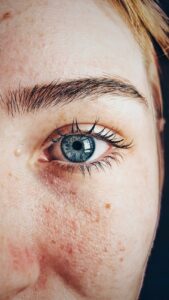
The therapeutic approach of modern medicine, for allergies, is based on three main directions: The first is to avoid contact with the factors that cause the problem, if they are found (because there are too many of them and not all of them can be detected). The second is the use of medications to suppress the symptoms, mainly corticosteroids (cortisone) and antihistamines, which often help but rarely have long-term results (besides any side effects). The third approach is immunological desensitization, which consists of administering to the body an infinitesimal amount of the responsible allergens (if indeed they have been found) in gradually increasing amounts so that the body slowly “gets used” to them and no symptoms are created. The latter method has produced interesting positive results but also has several non-responders and is also long-term (usually three to five years) beyond the financial cost.
But what can Homeopathy do about all this? In general, it has given very good results in a large percentage of cases and without any side effects. For Homeopathy the most important point is not so much in the search for allergens, because they are actually not the cause but the result of the problem! The real cause is the body’s hypersensitivity. This is also shown by the fact that the same factor does not bother all people, but often not even the same person all the times or to the same degree or throughout his life. Homeopathy can naturally and gently restore the balance of an overstimulated immune system by solving the problem in depth and in a reasonable time frame, often permanently. We emphasize that in acute anaphylactic reactions with very intense symptoms and a picture of possible allergic shock (not a frequent situation), the patient should, immediately and as quickly as possible, seek medical help particularly in a hospital environment and follow the instructions of the attending physicians exactly.
Homeopathy can also have good results in chronic skin diseases such as acne rosacea, seborrheic dermatitis and others that have not responded to other treatments. These are not characterized by an allergic etiology but may be due to various and often unknown factors.

The homeopathic remedy will be chosen by the doctor based on the patient’s detailed symptoms in combination with other factors including his mental state. It is known that due to the holistic action of Homeopathy, during the same treatment, other health problems of the patient may benefit in addition to the one which he came for. This is because the human body is one thing and it functions as a totality! Homeopathy, as we have said before, has limits and does not cure everything, but it can give excellent results even in difficult cases without risk to the patient.
Vasilios Zinas, MD Internist – homeopathic treatment
6 - MUSCULOSKELETAL PROBLEMS AND SPORTS OR OTHER INJURIES WITH HOMEOPATHY
Escaping musculoskeletal pain in a different way

Dear friends, musculoskeletal pain is one of the most frequent and annoying problems of modern man’s daily life that reduces his functionality and causes him psychological distress, lowering the quality of life. This is a huge set of pathological conditions that is impossible to analyze in detail in an article of this length, but we will try to give a condensed and comprehensible picture and above all to describe the great possibilities of homeopathy in these matters. Here we will mainly deal with traumatic and degenerative type diseases (rheumatic musculoskeletal pathologies are a special category and are analyzed in the article “autoimmune diseases”).
A large group of problems are painful musculoskeletal inflammations of traumatic and generally mechanical cause. These can be many pathologies of the muscles, joints and bones such as: cervical syndrome (e.g., neck pain), acute and chronic lower back pain, acute and chronic sciatica, middle back pain, tendinitis, “frozen shoulder”, epicondylitis of the elbow (“tennis elbow”), muscle strains (e.g., of adductors), carpal tunnel syndrome, coccygodynia (tailbone pain), sprains, fractures, joint stiffness, etc. Another category is degenerative-type pathologies such as osteoarthritis and various chondropathy cases (cartilage problems of knees and other joints, etc.), osteoporosis etc. There are also neuromuscular-type problems such as torticollis (wry neck), cramps, muscle “jerking” (e.g., “restless legs” syndrome), etc.
The medical treatments aimed at the above referred diseases are in two main directions. The first is chemical medication, based mainly on non-steroidal anti-inflammatory drugs, muscle relaxants and sometimes corticosteroids and others. These drugs have helped in many cases, but they also have some important disadvantages. The main one (besides any possible side effects) is that they often act by suppressing the symptoms without solving the central mechanism of the pathology, resulting in frequent relapses or a reduced response. The second therapeutic direction is surgical operations (in the indicated cases) which, despite their great offer (especially in emergency trauma but also elsewhere), are not always safe nor always successful and should be chosen when there is no other sufficient therapeutic option. Various milder therapeutic interventions such as physiotherapy (various techniques) and acupuncture could have a very valuable offering.
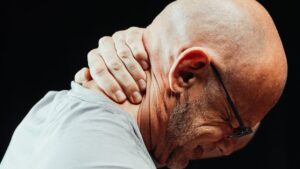
Homeopathic treatment is a powerful weapon in the doctor’s effort to relieve his patient from musculoskeletal pain and also, in a large percentage of cases, to effectively cure him with a complete and permanent result. Homeopathy can also be very useful in many cases that have either not responded adequately to other treatments or tend to recur frequently. The homeopathic medicine acts in a mild and natural way without side effects by restoring and activating the body’s own self-regulation and self-healing mechanisms. Someone would ask, “what kind of mechanisms are these, in this case?” I will give an example. A patient of mine visited me eleven years ago with severe and excruciating low back pain, every day for the last five months! She was receiving very strong treatment with anti-inflammatory and opioid drugs and constant physical therapy without much effect, while she was on the waiting list for spinal surgery and she was not asking Homeopathy to cure her but to bear the pain until she was operated on. In this particular case, her treatment went so well that the operation was canceled (!) and the patient is still doing very well without any major problems eleven years later! In the MRI, the anatomical changes in her spine even now they are exactly the same, as they were before, so why is she fine? So, it is these self-healing mechanisms of the body itself that resolved the inflammation and a long-term therapeutic effect was achieved without any particular limitation in the patient’s functionality. It is the same mechanisms that allow a natural human joint, of a healthy person, to last 80-90 years while an artificial joint made of a very strong metal, such as titanium, can be destroyed in 20 years of use! The main reason for this is that a natural human joint is a living thing, constantly repairing itself and renewing itself by billions of special cells, whereas metal is a dead thing with cumulative wear and tear over time. Here we should say that the anatomical changes found in the various imaging tests (X-rays, CT and MRI scans, etc.) do not always correspond directly to the patient’s symptoms. They may match fully, partially or not at all! If we do an MRI on the spine of a hundred passers-by on the street, we will find a large percentage with various anatomical changes (hollow intervertebral discs, osteoporosis, osteophytes and many others), perfect spines are much less common than we think. But of those with the findings, real symptoms have a much smaller percentage and they may never develop them in their lives. So, the physician must primarily treat the patient and not the film of the imaging examination (!), a rule to which Homeopathy is committed.

Homeopathy has given excellent results, in a large percentage of cases, in the special category of sports injuries. It is clear that various injuries and musculoskeletal problems of athletes can significantly affect their performance, depriving them of training time or even attendance at sporting events, sometimes burdening their careers. Homeopathy can help either by solving problems that have not responded to other treatments or by greatly reducing recovery time (e.g., even in fractures it can give big reduction in time to repair/rehabilitation). Homeopathic treatment in many cases can also help the chronic tendency of an athlete to present a specific type of injuries and other pathologies as well as, due to its holistic favorable effect on the body, it has even been reported to improve performance!
It is clear that in significant and persistent symptoms, imaging and laboratory tests and assessment by the relevant medical specialties (with priority of orthopedist and neurologist) are imperative in order to have a correct medical diagnosis. Also, once again, we will say that Homeopathy has limits and does not cure everything and always but it has certainly helped many patients who trusted it (even some very difficult cases) and without any risk to their health.
Vasilios Zinas, MD Internist – homeopathic treatment
7 - RECURRENT INFECTIONS AND HOMEOPATHY
Treating in a different but effective way frequent colds, tonsillitis, sinusitis, otitis, vaginitis, cystitis and other cases of chronic susceptibility to infections.

Frequent or recurring infections can trouble many people for months or years, or even become a permanent problem in their lives. In several cases, the use of antibiotics, antivirals, etc. can cure the specific infection without affecting the chronic sensitivity of the body, which can sometimes get worse. This is how we reach the frequent use of strong chemical drugs (with any risk of side effects) and in some extreme cases long-term continuous treatment (chemoprophylaxis). All of this, of course, can lead to the development of strong and drug-resistant strains of microbes and viruses with dangerous consequences (this is one of the biggest problems of modern medicine).
The main reason these things happen is that the problem is not so much the contact with the particular microbe, virus or fungus, but the condition of the organism itself! Of course, this does not mean that we should not follow the rules of hygiene and any other precautions that are needed, but since we do not live in a sterile world, contact with a pathogen is almost for sure. When our immune system is weakened for various reasons, environmental, nutritional and even psychological or other, then the body becomes vulnerable. The antibiotic can kill the particular microbe but it does not change the sensitivity of the organism so as soon as the next microbe is found the same thing can happen. Therefore, what is most important of all is the good condition of the immune system, which is the body’s defense against any attack. Our immune system is a product of evolution during hundreds of thousands of years, representing truly the most powerful weapon in existence against pathogens and this is to what, Homeopathy addresses!
The homeopathic remedy does not have any direct effect on the pathogens (it does not “kill” something) but it has a more significant effect. It restores and activates the body’s immune system and thus, in a completely natural way and without side effects, the body heals itself or does not even get sick. These are the same mechanisms by which, in a significant percentage of cases, a person heals on his own without taking any kind of medicine. Homeopathy has a high success rate in individual infections such as colds, tonsillitis, sinusitis, otitis, gastroenteritis, vaginitis, cystitis, etc. but more importantly, it can strengthen the body’s own defenses so that it stops being vulnerable to various pathogens that threaten it. The selection of the appropriate homeopathic medicine is made after a detailed analysis of each patient’s symptoms, taking into account other factors and even his psychological condition.
Of course, it goes without saying that if there are significant and insistent symptoms, a medical assessment and the necessary laboratory and imaging tests should definitely be done. Also, in cases that do not respond sufficiently to homeopathy, a treatment with conventional chemical drugs can and should be followed. We emphasize that in cases with very intense symptoms and generally urgent situations, the patient should seek, as quickly as possible, medical help in an emergency department of an on-call hospital and follow the instructions of the attending physicians exactly.
Homeopathy, as we have said before, is not a “panacea” and it does not cure everything nor can it replace conventional medicine everywhere, but it is a very effective, mild and without side effects treatment that has helped in many cases.
Vasilios Zinas, MD Internist – homeopathic treatment
8 - CHILDREN’S (PEDIATRIC) PROBLEMS AND HOMEOPATHY
A therapeutic method with a great contribution to the child’s health

Dear friends, perhaps the most precious creation for a person and for the whole society are children! Children are our future (along with our past!) and the hope for a better world! The excellent overall management of children’s health is a huge and complex issue with far-reaching implications and is perhaps the key guarantee for a healthy adult. The complete analysis of the physical as well as the mental issues that may concern the child’s organism is a gigantic task that certainly goes beyond the purpose and possibilities of this small article. We will try to form a condensed overview and above all to give an idea of the great potencial of Homeopathy in this critical area of human health (some issues of great importance may be analyzed in more detail in other individual articles).
The special characteristics and needs of the child are numerous and can change in relation to the development of his age. According to modern views, which I personally support, the psychosomatic history and influences of a child begin very early, not even from birth but even during pregnancy (!) and even from conception (!!). It is clear that heredity (through genetic but also possibly epigenetic effects) can play a role in a child’s development, but this is relative and under conditions. Modern genetics has shown that a gene, whether normal (e.g., affecting height) or pathological (e.g., affecting cholesterol values), can be influenced, in terms of its expression, by many factors. For example, a child growing in conditions of malnutrition can reach a height of 1.67 m and the same child in conditions of adequate nutrition can reach 1.71 m. Therefore, while every person (except in special cases) is usually born in good health, over time and as various damage accumulates, he may develop various problems, physically or mentally, concerning his “week” points. Normal conception (for many reasons preferable to in vitro fertilization unless is difficult otherwise), normal delivery and adequate breastfeeding, are factors that favor the future health of the child. Because prevention is better than any cure, especially in children, what parents should pay attention to is : a proper balanced diet with good quality food without chemical additives, avoiding many chemical drugs (unless there is a significant reason), adequate and proper play along with social activity and most important of all, the good family balance and the offering of love and security which is most important for the child’s soul! Children do not need the luxury and impression of expensive gifts and other rewards, but they absolutely need the warmth of human contact and sincere interest which they feel in an incredible way!
Homeopathy has given excellent results in a very wide range of physical and mental problems of childhood. Starting from infancy it can help with issues such as: restlessness or poor sleep (and teething symptoms), insufficient food intake, infant constipation, milk intolerance, skin problems, febrile spasms and others. In general, in children and adolescents it can have very good results in frequent colds and other recurring infections (e.g., otitis, tonsillitis, urinary tract infections, gastroenteritis, etc.), persistent constipation and abdominal pain in the context of possible irritable bowel, allergies (e.g., rhinitis, conjunctivitis, urticaria, atopic dermatitis, etc.) and childhood asthma, skin problems (e.g., acne, eczema, warts, etc.), headaches, nocturnal enuresis and various others. It may also help significantly even in some very difficult cases such as autoimmune diseases, neurological disorders (e.g., spasms, tics, ADHD, autistic syndromes, etc.), metabolic disorders, developmental delay, etc.
Homeopathy can help, really in great depth, with many and sometimes difficult psychological issues of children and teenagers such as: melancholy, anxiety or panic attacks, night terrors (sometimes with nightmares or hallucinations), phobias of all kinds (e.g., with the dark, with some animals, being alone, etc.), behavioral disorders (aggression, transgression, antisociality, etc.), jealousy, hysterical reactions, low self-esteem, eating disorders (bulimia, anorexia nervosa) learning disabilities (distraction, insufficient assimilation, etc.) even problems of students before exams (“burn out” with inability to study or sudden memory loss due to stress or refusal to attend exams, etc.) and others.
Homeopathy, due to its holistic nature, sees the case of each child as a whole. Each small patient is a special and unique case and the doctor chooses the right homeopathic remedy for him, taking into account all the issues that concern him on a physical and mental level. The homeopathic remedy works in a mild natural way, without any side effects or allergies and various negative interactions, restoring and activating the body’s own self-balancing and self-healing mechanisms. This can improve, among others, the functioning of the immune system as well as the mental balance of the child with possible favorable results in various health issues in addition to the main one for which the child was brought. The final result of homeopathic treatment is essentially a creation and property of the human organism itself and not strictly of the medicine and for this reason tends to be long-term or even permanent (provided of course that the treatment has gone well and its completed correctly).
Homeopathy also has great preventive value because after a successful treatment, is not simply restored the basic problem, but the body is better regulated as a whole and several chemical drugs have been avoided, thus reducing the chances of the appearance of subsequent problems.
It is clear that Homeopathy does not invalidate classical pediatrics and cooperation with the pediatrician is necessary, in order to monitor the development and general progress of the child and for the necessary vaccinations as well as for the investigation of severe and/or persistent acute and chronic symptoms which require special attention. It is also mandatory to carry out all the necessary laboratory and imaging tests as well as the use of any chemical medicine considered necessary.
We emphasize, as always, that Homeopathy is not a “panacea” nor does it cure everything, but it has helped millions of children all over the world to have a much better psychosomatic health, with absolute safety but also with great positive implications for their later adult life and for the whole society!
Vasilios Zinas, MD Internist – homeopathic treatment
9 - MENOPAUSE AND HOMEOPATHY
A special development in a woman’s life and a different management
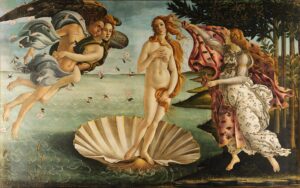
Dear friends, the arrival of menopause is a key moment in every woman’s life, not as a really bad thing but as an important change with many implications.
Menopause essentially marks the completion of the reproductive cycle and this is accompanied by hormonal changes that affect a woman’s body on many levels, physically as well as mentally. Are well known the many and often particularly disturbing symptoms such as hot flashes, sweats (especially at night), palpitations, vaginal dryness (disturbing sexual life), headaches, weight gain, loss of bone and muscle mass, dry skin, feeling tired and other. The mental effects can also be significant such as strong mood “ups and downs”, irritability, melancholy, reduced libido, concentration difficulties, insomnia and others. I insist that menopause is not a disease but a major change in the woman’s body which is upset in its attempt to adapt to the new conditions (the symptoms do not apply to all women nor to the same intensity).
The age at which menopause normally occurs is another, long, debate. Some, wide-ranging and conventional, time frames are defined from after forty to after fifty years old and if it occurs earlier then we are talking about premature menopause which is an abnormal and pathological condition. In fact, every female body has a “biological clock”, from nature itself, that no one knows (not even the doctor) how it is programmed. If a woman in her thirty’s experiences menopause symptoms, then she and her doctor will be motivated to find out what is going wrong but if the same thing happens in her forty five’s it will usually be considered expected and normal. But if the same woman was, by her nature, to enter menopause at fifty-one then we have an equally premature (and pathological) case! Not even hormonal tests can clarify the question in a safe way because these are a “photograph” of the moment and in cases of early menopause at young ages they can be equally pathological. A woman’s hormonal cycle is a very complex and complicated process and can be affected by many causes such as heredity, environmental and nutritional factors, some chemical drugs and even psychological traumas (shock) like an abuse, a loss or a separation, etc.

The classical conventional treatment of the symptoms of menopause as well as premature menopause is mainly based on hormone replacement, firstly with synthetic hormones. This can help in some cases but, several times, it is combined with side effects (e.g., fluid retention, headaches, bloating, etc.) and can sometimes hide risks such as a tendency to clots, gallstones and others, even depression or possible malignancies (in the uterus or breast). Alternatively, natural biomimetic hormones can sometimes be used, which is perhaps a better and safer option, but in many cases they do not respond adequately.
Homeopathy in the symptoms of normal menopause but also in premature menopause has given, in a large number of cases, very good and sometimes impressive results, even in some difficult cases that have not responded to other types of treatments. Homeopathic treatment works in a mild and natural way, without any side effects, mobilizing the body’s own mechanisms with the aim of restoring its hormonal balance. Homeopathy is a holistic healing approach and always takes into account the whole picture of a person’s health, physically and mentally, and not just the hormonal disorder in order to choose the right medicine. For this reason and as long as the body “self-regulates” and starts to function better in general, an improvement may also appear in other health issues (apart from gynecological ones) within the same treatment (e.g., headaches). Note that Homeopathy is not a “panacea” and cannot help in all cases (like any other treatment) nor can prolong the female cycle indefinitely, in an unnatural way, but it is certainly a very worthwhile treatment option and without risks. Of course, in all cases it is absolutely necessary and imperative that every woman should be monitored by her gynecologist with an objective medical assessment and the relevant laboratory and imaging tests.
Vasilios Zinas, MD Internist – homeopathic treatment
10 -MENSTRUAL DISORDERS AND HOMEOPATHY
An, often difficult, women’s issue to solve and an alternative approach
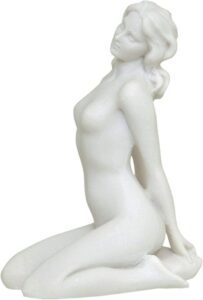
Dear friends, menstrual disorders can torment a woman, sometimes for many years, reducing her quality of life and limiting many of her options. Under this term, many different cases are included such as: 1. Excessive blood flow, only during the normal menstruation time 2. The blood flow in an unsuitable time, outside of the normal menstruation, at points throughout the cycle (uterine bleeding) 3. Delayed menstruation of more than 40 days (except pregnancy) or its interruption for up to 6 months (oligomenorrhea/amenorrhea). There are also cases with very intense menstrual pains (dysmenorrhea) or a set of disturbing symptoms before the menstrual cycle identified as premenstrual syndrome (such as headache, musculoskeletal pain, cramps, bloating, breast tenderness, anxiety, irritability, mood swings, etc.).
The etiology of menstrual disorders can be related to many factors such as: possible pregnancy, age (e.g. adolescence or imminent menopause), nutritional disorders (obesity/weight loss), environmental conditions (e.g. bathing in cold water), overwork, some chemical drugs, various gynecological diseases (endometriosis, ovarian cyst or polycystic ovaries, uterine fibroids or polyps, etc.), other coexisting diseases (e.g., thyroid diseases, diabetes mellitus, etc.), psychological issues (stress, depression, anorexia nervosa, traumatic experiences, etc.).
A period disorder can be a short and transient condition that any woman can experience. In severe or persistent symptoms, the first thing she should do is contact her gynecologist for a medical objective assessment and the relevant imaging and laboratory tests so that a diagnosis can be made and the appropriate treatment (pharmacological or surgical) can be proposed. The hormone therapy that is often recommended in such cases often presents several problems. There is a significant percentage of cases that go on without responding adequately and several side effects can sometimes occur (e.g., fluid retention, headaches, bloating, etc.) or risks such as a tendency to clots, gallstones and others, even depression or possible malignancies (in the uterus or breast).
In various of the aforementioned menstrual disorders, Homeopathy can, in many cases, give very satisfactory and sometimes impressive results even in some difficult cases that have not responded to other treatments. Homeopathic treatment works in a mild and natural way, without any side effects, mobilizing the body’s own mechanisms with the aim of restoring its hormonal balance. Homeopathy is a holistic healing approach and always takes into account the whole picture of a person’s health, physically and mentally, and not just the hormonal disorder in order to choose the right medicine. For this reason and as long as the body “self-regulates” and starts to function better in general, an improvement may also appear in other health issues (apart from gynecological ones) within the same treatment. We have to point out that Homeopathy is not a “panacea: and cannot help in all cases (just like any other treatment) but it is certainly a very worthwhile treatment option and without risks. Of course, in all cases, it is absolutely necessary and mandatory for every woman to be regularly monitored by her gynecologist.
Vasilios Zinas, MD Internist – homeopathic treatment
11 - INFERTILITY AND HOMEOPATHY
One different approach to a very sensitive issue

Dear friends, in the following analysis we will deal with the extremely important but also particularly complex issue of infertility, from the perspective of Homeopathy. This is a case that has been troubling more and more couples, especially in the “developed” world, in recent years.
Based on the conventional criteria of medicine, the issue of infertility arises when a couple, of reproductive age and without contraceptive measures, fails to achieve pregnancy within 12 months. This difficulty can concern each gender separately or both genders combined. Female infertility can be due to many factors such as ovarian pathologies (e.g., polycystic ovary syndrome, etc.), tubal blockage and other anatomical problems, endometriosis, pelvic inflammatory disease, auto-immunity, age and others. Male infertility can be mainly due to low sperm quality (with various abnormal parameters) or to some underlying diseases (endocrinological issues, etc.) or to some anatomical problems, etc. It seems that environmental, nutritional and psychological factors may affect fertility. There is a significant percentage of cases that are medically unexplained and of unknown origin so, also even in a case where a negative factor is identified it does not mean that the problem is due to it alone (because several times it can be restored without a pregnancy result).

In the matter of infertility, it is absolutely important and imperative to carry out a full gynecological and andrological examination by the relevant medical specialties (gynecologist and urologist/andrologist) together with the necessary laboratory and imaging tests, so that the correct diagnosis can be made (if possible) as also the appropriate treatment (pharmaceutical or surgical) that is recommended.
Homeopathy in the matter of infertility can often give good and sometimes impressive results even in some cases that have not responded to other treatments. The cases that can benefit the most are: 1. Infertility of unknown etiology 2. Infertility where the restoration of the probable cause did not produce any positive result. 3. Cases where the patient wants to avoid the administration of hormonal preparations or has health reasons for which their use is contraindicated.
Homeopathy cannot help in cases of anatomical problems (e.g., blocked fallopian tubes). Also, some cases are not eligible for Homeopathy (even if it could help), mainly such as cases with very short time limits because of the age (unless the possibilities of other methods have been exhausted and/or it is a conscious choice of the patient to avoid them).

Homeopathy always works in a natural way, without side effects, restoring and activating the body’s own “self-regulation” and “self-healing” mechanisms and is a holistic approach to the “hot” topic of fertility. This means that it takes into account all the factors, physical and mental, that can affect the organism. For this reason, in the context of the same homeopathic treatment, in addition to the basic effect of childbearing, other health issues, physical or mental, may also benefit. On the other hand, it has happened to our patients who started homeopathic treatment for other health issues that childbearing occurred, while they were trying for a long time without success!
A very important element, from my own experience, is not only what a person’s body can do to procreate, but also what it wants to do! I’ll give an example so you can see what I mean. A woman came to my office with a diagnosed infertility problem and with completely normal tests, having also made an attempt at in vitro fertilization with no result. From the history taking, a weight of 49 kg with a height of 1.73 emerged and in combination with some coexisting psychological problems led me to the diagnosis of borderline anorexia nervosa. Following homeopathic treatment, she showed a significant improvement, mentally and physically (weight 57 kg) and today she has two healthy children! In this case an organism in a state of malnutrition did not “want” to proceed with a pregnancy because it was doubtful whether it could support it. The central idea is that each case is unique, special and different and the doctor must choose the right homeopathic remedy to “unlock” the body. The holistic view of a case and the corresponding therapeutic approach are very important.
Clearly Homeopathy has limits and is not a “panacea” to cure everything nor the practitioner is a “magician”, but Homeopathy has a really remarkable potential along with a very high level of safety.
Vasilios Zinas, MD Internist – homeopathic treatment
12 - DISORDERS OF LIBIDO WITH MALE AND FEMALE LACK OF SEXUAL DESIRE (FRIGIDITY) AND HOMEOPATHY
A sensitive issue with significant implications for quality of life and human relationships

Dear friends, sexual desire is a very delicate and complex issue with great implications in human relationships and which definitely affects the quality of our lives. In modern society and especially in the “developed” world, while there is sexual “liberation” along with many and intense sources of stimulation, in reality the power of sexual attraction seems to have fallen on both men and women. This has to do with a lot of factors, but in essence our sexual desire is determined by the combination of our physical and energetic state along with our mental state therefor is a good and reliable indicator of our health level.
In a person who experiences a significant drop in libido, in principle we should rule out the possibility of some underlying disease (e.g., endocrinological problems, etc.) or the use of certain chemical drugs or the existence of abuses (e.g., alcohol, substances, etc.) that may have affected the body. This should be done with a careful investigation by a medical internist and/or gynecologist and/or andrologist-urologist together with relevant laboratory and imaging tests. In this case, treating the underlying disease and managing the other causes will likely improve the condition. The truth is that the majority of cases cannot be attributed to any physical illness, or if there is, it is not necessarily the main reason causing the problem.
The two principal factors, in my opinion, that can lead to a drop in sexual desire are the body’s energy depletion and the psychological state of a person.

The exterminating rhythms of everyday life, in an increasingly competitive society, can lead even the best health quality persons to a deep energy deficit. So, as the “love game” requires the consumption of a significant amount of energy, either in the process of flirting or for the sexual act, and the human organism instinctively is primarily interested in its survival, what it does is that “it cuts the expenses”! This is also the reason why the drop in libido is the only, perhaps, pathological condition that almost never bothers the person concerned (such as a headache or depression, etc.) but bothers his partner who accepts the consequences (with the exception of some men who may be mobilized for primarily selfish reasons)! How is possible a situation that is body’s own choice could bother it! Good sexual life is essential in couples. The cliché that in a relationship what counts only is the deepest mental contact (which is certainly primary and necessary) is not true, because a good sex life completes coexistence and softens the contrasts favoring the longevity of a healthy relationship. It is well known how many concessions makes a couple who live together in a warm romantic situation, while we all become more “strange” and demanding without it!
A person’s psychological state is, indisputably, the number one factor that determines love mood and sexual desire. This is a particularly complex area since the human soul can be affected by many situations and events in life, starting from somebody’s upbringing and family environment and continuing with personal relationships, working conditions, possible psychological trauma after a shock and various others. At this point, we should also touch upon the role of the exaggerated life and image standards, for men and women, projected by the social media, mainly for commercial reasons, and which devalue the image of the average person, leading to a decline in his self-confidence. We do not aspire to exhaust this vast subject within the limited space of a short article, but what is clear is that a physician in order to help a person in the libido question he should be attentive to the soul (psyche) of the patient and avoid searching, from one point and then, the organic problem that simply just doesn’t exist (or it’s not primary).
Concluding this “condensed” analysis, we should say that the role of age and gender in the decline of sexual desire is quite overestimated, in terms of its participation in the problem, and very often it becomes the “scapegoat” on which are placed all burdens for the situation that do not really apply. We are not saying that someone can have the same mood for sex in their sixties as in their twenties, but they can have a very good desire and performance! Certainly, if they are obese, smokers and depressed, their age is not responsible for the drop in libido that they experience!
Homeopathy has given very good results in a large percentage of cases with the above problems. Since it is by nature a holistic treatment method, it treats decreased sexual desire as a problem that concerns the overall state of health, physically and psychologically. The homeopathic remedy acts in a mild natural way, without side effects, activating the body’s own self-healing mechanisms. So, as is treating the basic psychosomatic pathology and energetically restores the body, it manages to strengthen, often impressively, the libido. Homeopathic treatment can help a lot for a better mood and also significantly improve specific physical dysfunctions that are particularly troublesome during sexual intercourse, such as vaginal dryness and/or irritation in women and erectile dysfunction in men, reducing or eliminating the need for chemical therapy while avoiding any of its side effects or other risks.
We emphasize, as always, that Homeopathy is not a “panacea” and does not cure everything, but it is always an alternative therapeutic approach that has helped millions of people, who trusted it, all over the world in a completely safe way.
Vasilios Zinas, MD Internist – homeopathic treatment
13 -PANIC ATTACKS AND HOMEOPATHY
A different answer to a burning hot problem of our time
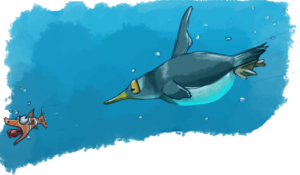
Dear friends, in the following analysis, we will deal with an anxiety disorder presenting a strong psychosomatic dimension, which is the “panic attack”, something already known to many people. In our age with the dizzying pace of everyday life, constant stress and inexorable social competition, this is a diagnosis that is heard more and more often. Studies estimate that around 3% of the population in Europe and 11% in the US have experienced at least one such crisis, but there are indications that the numbers may be much higher (if we include those who do not realize the problem or do not seek help, etc.). In my own estimation, from my experience in the doctor’s office, this condition has developed into a kind of “epidemic” that is now found even in young children!
But what is this famous “panic attack”? It is possible for a person who is under pressure (stress) or even in a state of calm, without any particular discomfort, to suddenly start to feel, more and more intence, some psychosomatic symptoms. These may be discomfort/shortness of breath, flushing or chills with sweating, “heavy” head, fast heart rate/palpitations (often with high blood pressure), dizziness, nausea, tightness or pain in the chest and upper extremities, cramps, tremors, feeling of losing mental control or impending insanity and others, along with (perhaps most important of all) an overwhelming fear of serious illness and possible imminent death. With all or some of these symptoms (they are not always present all of them), the patient will often end up terrified in an on-call hospital where, after a medical assessment and the relevant tests, it will be established that there is no serious organic health problem and he will administered some anti-anxiety drug with the recommendation to consult a psychiatrist and/or a psychologist. Note that not all anxiety attacks are panic-type, especially if there is no fear of imminent serious illness and possible death. If a patient suffers from chronic recurrent panic attacks a diagnosis of “panic disorder” is made. We must emphasize that some serious symptoms should never be attributed to a panic attack without a medical assessment and the relevant tests, because it could be something else with unpleasant consequences. This acute situation that we described earlier can also be accompanied by chronic phobias of different types such as: fear of chronic serious diseases, fear of leaving the familiar environment (especially unaccompanied), fear of many means of transport (planes, ships, metro, etc.), fear of open or closed spaces, of crowding, of the dark and many others.

But what is the cause of all the above and what is the main mechanism that can lead to an attack or even a panic disorder? A panic attack is a condition that can be normal under certain circumstances! What does this mean; If a person while walking carelessly is suddenly attacked by a wild dog and perceives it with his senses (sight, hearing), automatically and without thinking at all, his heart rate will accelerate, his blood pressure will rise (under the influence of adrenaline and other stress hormones) and will generally go into a state of psychosomatic alert to react and save his life. This is a normal and desirable “fight or flight” response and is essential for survival. The problem starts when there is no dog! In some cases of people who have experienced some very intense and possibly traumatic events (strong shock, such as a serious car accident or a loss) or some prolonged period of intense stress, this “alarm” of the organism may remain permanently activated! (It’s like a car, parked in the street, with its alarm system to sound constantly, day and night, without to be any thief!). This has two very serious implications. The first is that its an extremely unpleasant situation and anyone who has experienced it knows this very well! The second is that the energy cost, for the human organism of being in a constant state of readiness, to deal with a threat that does not exist, is truly enormous. Even the most resistant and healthy person can, at some point, suffer serious damage.
Let’s go now to, perhaps, the most important question: how can this problem be cured and what can Homeopathy do about it? Panic disorder is not an easy issue for anyone to manage and treat. The most basic classical therapeutic approaches are psychiatric treatment with chemical drugs and psychotherapy with a psychologist (there are various schools/directions). These interventions can give some results but they also have several problems. In the case of psychiatric treatment, in addition to any side effects (not rare) of the chemical drugs, when it is decided to reduce or stop them (if the treatment has gone well, which is not a given), several times, there is a tendency to relapse. There are also cases with serious restrictions on the administration of specific chemical drugs such as in perspective or during pregnancy or at very young ages. Psychiatric treatment, in my opinion, is most useful (and unfortunately sometimes necessary) especially in cases that are uncontrolled and/or have not responded to other treatment approaches. Things are better with psychotherapy, however, and here there are some issues such as the frequent need for long-term treatment and several cases that do not respond (apart the financial cost). Homeopathy, based on my many years of therapeutic experience, probably has the highest rate of complete healing in panic disorder and the most long-lasting (off course even Homeopathy is not always successful either). The selection of the homeopathic remedy is personalized and holistic, taking into account all the symptoms of the patient mentally and physically, and its mode of action is natural through the restoration and activation of internal psychosomatic self-defense mechanisms that every human has, without any side effects. It is these same natural mechanisms that, many times, help a person to recover from a strong mental shock (e.g., a loss or a separation etc.) without receiving specific help. So, in reality the homeopathic remedy helps the organism to heal by itself and that’s why the final result (if the treatment goes well), is a creation and property of the human organism itself and not of the medicine plus, most frequently, it’s long-lasting even after the discontinuation of the homeopathic treatment (provided it has been properly completed). We note that many times Homeopathy can work in combination with other types of treatments, and especially together with psychotherapy, giving very good results in panic disorder (but also in many other anxiety disorders and phobias).
Vasilios Zinas, MD Internist – homeopathic treatment
14 - DEPRESSION AND HOMEOPATHY
A scourge of our time and a different healing path

Dear friends, the purpose of this article is not to do an in-depth scientific analysis of the pathological condition described by the psychiatric term depression because hundreds of pages would not be enough. We will try to describe in a condensed understandable way the essence of the problem and what Homeopathy can do about it.
Depression (and related syndromes) has become an “epidemic” of our time with a rapidly increasing number of cases, and especially in the “developed” world the problem is now dramatic. The main pathological mechanism is largely unknown and apart from factors such as heredity or some biochemical alterations the basic causes should also be searched at the social level with the excessive competition, family crisis and emotional alienation as well as excessive and false standards of success. The fact of the biochemical alterations that some research finds in depressed patients usually occurs after previous traumatic experiences and mental suffering, and therefore the reasonable question arises whether it is the cause or the result of the problem?!
First of all, we should say that a person, after a very serious negative event in his life, to feel for some time sadness, fear, anger and other strong emotions, accompanied perhaps by some psychosomatic reactions, is something completely normal and expected. From my own experience, I would say that the problem starts in three cases: The first concerns incidents where, although the negative event is recent, the intensity of the mental and physical symptoms is excessive, as a result of which it threatens the psychosomatic integrity of the specific person. The second case is when after a negative event we don’t have symptoms excessive in intensity, but they are prolonged or even permanent over time with no signs of recovery. The third case is to have intense and/or persistent psychosomatic symptoms without being able to be connected (at least apparently) to a specific event or situation that justifies them. The word depression is a psychiatric term that I, as a doctor, avoid in conversation because it could mean different things for each person. So, I ask “what do you mean by that word?” “Do you feel sadness, melancholy, hopelessness, fear, anger, guilt, frustration, resignation, obsessions, emptiness, indifference?” “Is there any aggression towards others or a tendency to harm yourself?” “Are the mental symptoms accompanied by insomnia, abuses, eating disorders, lack of sexual desire, or any physical symptoms (such as fatigue, headaches, muscle spasms and cramps, etc.)?” All of this is much more meaningful than saying “I’m depressed” or trying to put the whole situation into a “cold” scientific term. It goes without saying that in cases with severe symptoms, psychiatric assessment is mandatory, mainly to formulate a reliable medical diagnosis (if possible), to investigate possible organic causes and to assess the degree of danger of the situation beyond any treatment.
Regarding the basic therapeutic approach to depression, we can distinguish two directions.
The first is psychiatric treatment with chemical drugs which have greatly helped many people, especially in uncontrolled and dangerous cases, but they also have some serious problems. A very important point is that, if they manage to control the condition (which is not a given) and beyond any side effects (quite a few and sometimes serious), the action of chemical drugs is mainly to suppress the symptoms without permanently restoring the central mechanism (often unknown) that creates the problem. This is evident from the fact that in a large percentage of cases when the treatment is reduced or stopped the symptoms recur. Addiction phenomena and/or gradual weakening of the effect of the drug may also occur, resulting in dosage increases or replacement with stronger ones. There are also cases such as e.g., the prospect or the fact of a pregnancy that do not allow their use. My own view is that psychiatric treatment with chemical drugs should be the last resort when other efforts have failed, unless there is an immediate risk (e.g., strong suicidal tendencies) where it should be the first and urgent option.
The second main therapeutic direction is psychotherapy where there are many schools of thought and methodologies. It is a respectable practice that is certainly in most cases preferable to chemical medication and has helped many people to improve through a course of awareness, self-awareness and externalization along with some tactics of education and self-control. The main disadvantages of this approach are the usually long-term therapeutic course, the significant percentage of cases that do not respond adequately and the, often, serious financial costs. Psychotherapy can be combined well with Homeopathy and in this way have a better result.
Let’s go now to perhaps the most important point of how Homeopathy sees the problem of depression and what it can do about it. Man is a whole consisting of the immaterial soul and the material body, and the physician cannot but see the whole! Each human organism hides within itself important self-healing forces on a physical as well as a mental level. It is these same forces that (as far as the mental level is concerned) lead a healthy person to recover spontaneously from a strong emotional shock (e.g., a loss, a breakup, etc.) or to cope with a very difficult period in their life. If, for various reasons, these forces fail then comes the disease. The homeopathic remedy addresses exactly to these internal mechanisms of self-defense and self-healing and by restoring their function leads to complete and stable cure in a natural way and without side effects or addiction phenomena. Homeopathy has limits and does not cure everything and always, as in some situations it is not the most suitable option (e.g., when there is a strong tendency to commit suicide where psychiatric help should be urgently sought and chemical medication administered immediately), nevertheless it has given excellent results in many cases sometimes and in some particularly difficult and chronic ones. Homeopathy cannot (nor does it want to!) change a person’s character, but tries to restore him to his healthy dimension aiming at well-being and unhindered functionality and creativity, with the end result being a high quality of life.
Vasilios Zinas, MD Internist – homeopathic treatment
15 - INSOMNIA OR OTHER SLEEP DISORDERS AND HOMEOPATHY
Restoring restorative sleep naturally

Dear friends, as we all know, the issue of sleep is central to our lives! Let’s not forget that we spend more than a third of our time on this Earth, sleeping! During sleep our body rebuilds and our mental function gets “decompressed” and balanced.
Many millions of people (from 10 to 30% of the population) around the world suffer from insomnia of either the transient type (which we all have experienced at some point) or the chronic type (for more than three nights a week and for more than three months). The sleep disorder can be characterized by difficulty falling asleep, interruptions, early awakening, or a combination of these. There are some conventional criteria for how much we should sleep (7-9 hours for adults and more for children depending on age) but I would say that a safer criterion is how we feel energetically after sleep and during the day. Apart from time, the quality of sleep is also very important. When we do not have deep sleep (REM stage), with a heightened sense of the surroundings, or we are troubled by anxious dreams and nightmares, then real physical and mental rest is not achieved.
In every person there is an internal biological clock that determines the sleep schedule (circadian rhythms), in relation to complex neuroendocrine mechanisms, and it can be influenced by many factors even by diet or the environment (e.g., weather conditions or a very long air travel with the well-known “jet lag”). Sleep can also be affected by organic causes (e.g., sleep apnea, gastroesophageal reflux disease, musculoskeletal problems, chronic obstructive pulmonary disease, menopausal symptoms, encephalopathies, endocrinological problems and various other underlying diseases) so in intense and persistent situations you should a careful medical investigation and related laboratory and imaging tests are performed. But sleep is primarily a psychosomatic phenomenon and most of the time no organic cause can be identified. In the modern “developed” world, the intense rhythms of everyday life together with the abundance of various stimulations and an almost permanent mental load, due to stressful situations, often affect the time and quality of our sleep, leading us to insomnia. Our soul is uncomfortable in an environment of emotional alienation and threatening social competition resulting in a state of constant vigilance! Under these conditions, how can anyone have a good night’s sleep?!
Conventional medication for insomnia relies on anxiolytics, hypnotics, antidepressants, etc. and of course in the treatment of the underlying disease, if it exists. Chemical sleep medications have helped in some cases, but it is clear that their action is simply suppressive and rarely provide a real solution to the problem. A much better approach, in my opinion, is psychotherapy which has helped many people with the main disadvantages being the usually lengthy intervention, the significant proportion of cases that may not respond adequately, and the financial cost. Insomnia can also, in some cases, be helped by phytotherapy and acupuncture. It goes without saying that a regular schedule, a proper diet, physical exercise and avoiding abuse of all kinds, as well as a good sexual life, help to sleep well.
In addition to insomnia, which is the most basic sleep disorder, there are others such as hypersomnia (excessive sleepiness and/or long hours of sleep) and parasomnia (e.g., sleepwalking, episodes of night terrors or bulimia, teeth grinding, etc.).
Homeopathy, for sleep disorders, has given excellent results in a large percentage of cases involving adults and children or toddlers (e.g., during teething where no one can sleep at home!) and even infants. Due to its holistic nature, it addresses the psychosomatic whole of the human organism (is treating body and mental imbalances). The homeopathic remedy is not a hypnotic or anxiolytic/antidepressant, but in essence affects the complex psycho-neuroendocrine central etiological mechanism that causes the problem, restoring a very good sleep. Its action is achieved in a mild natural way and without side effects or addiction, by mobilizing the great self-balancing potential of the organism itself on many levels, physically and mentally, resulting in a general improvement of the health of the specific person. That is why we say that Homeopathy “treats the patient and not just the disease”!
As always, we emphasize that no doctor knows everything nor Homeopathy is a “panacea” that cures everything, but it has helped many people, who trusted it, to escape the suffering of poor sleep with absolute safety for their health.
Vasilios Zinas, MD Internist – homeopathic treatment
Vasilios Zinas, MD Internist – homeopathic treatment
16 - AUTOIMMUNE (RHEUMATIC) DISEASES AND HOMEOPATHY
A great issue of our time and a great alternative therapeutic contribution

Dear friends, the issue of autoimmune diseases is too big to cover in an article of this length. What we will try, in the following analysis, is to give a sufficient overview of the problem and explain how Homeopathy can help.
But what does autoimmune or rheumatic disease mean? It is actually a “family” of different diseases with a common cause. This cause is the deregulation of the immune system (that is, the defense system of the body) with the result that it becomes aggressive and sometimes destructive towards the body itself! It is like an army killing its own soldiers! This has the effect, depending on the part of the body that will be attacked, of creating different diseases. If the joints are attacked then we have rheumatoid arthritis, if the attack is in the intestine, then we are talking about ulcerative colitis or Crohn’s disease, if the attack involves the brain, then it is multiple sclerosis, if the attack is at the neuromuscular level, then it is myasthenia gravis and if the attack affects several organs and systems at the same time, then we are talking about lupus (one of the most serious cases). There are several more such diseases, with varying levels of severity, such as autoimmune liver diseases, Hashimoto disease (regards thyroid), psoriasis and vitiligo (regards skin), Sjögren’s syndrome (regards mucous membranes), alopecia areata (regards hair follicles) and several others (calculated over hundred – some, important ones will be analyzed in separate articles). It has been observed that people who have one autoimmune disease have an increased chance (compared to a person who does not) of developing another. In recent years and especially in the “developed world” there is a strong increase in these diseases and, despite many studies and the pathological mechanisms that have been identified, in fact their cause is unknown. There are indications that many factors are involved such as, heredity, some infections, contact with toxic and other factors in diet and environment but certainly there are other unknown causes. There is strong evidence that autoimmune diseases are also associated with intense mental stress (chronic emotional strain and impasses as well as severe mental shocks).
These diseases are usually chronic with exacerbations and remissions and it is very difficult to achieve a complete and permanent cure. The basic direction of conventional medical therapy are drugs that suppress this “crazy” aggression of the immune system, the so-called immunosuppressants, with the main representatives being corticosteroids (cortisone), hydroxychloroquine, cyclosporine, methotrexate, biological agents and others. These drugs have greatly helped many patients, but they also present some serious problems. In principle, it is a symptom-relieving treatment which, in a large percentage of cases, fails to achieve a permanent complete cure. Also, a big issue is that, apart from the significant side effects that these drugs can have over time, the suppression they cause in the immune system is not only about aggression towards the wrong targets (i.e., the body itself) but also towards the right ones, such as pathogens and other threats for the body. Thus, the organism becomes vulnerable to various other diseases, sometimes quite serious.
Homeopathy, in many cases, has given good results in such diseases. The homeopathic remedy acts in a natural and mild way, without side effects, restoring and mobilizing self-regulation mechanisms of the immune system and the body in general on many levels, physically and mentally. In this way, the homeostasis of the organism is improved and the phenomena of self-destruction are limited, resulting in a serious improvement and several times even a complete cure. Homeopathy can help to limit the intake of chemical drugs or to stop them completely. Due to the holistic nature of Homeopathy, the doctor is interested in all the patient’s physical and mental problems and not only in the specific disease. The reasoning is that for the organism to show such a severe disorder something has disturbed it, at a really great depth. Here we must note that Homeopathy (and I personally) gives special importance to the psychological dimension, which is the center of the human being, that should be cured in order to heal the body as well.
The assessment of the case by the rheumatologist and the monitoring of the disease, through laboratory and imaging tests, are needed in every case. In cases that are improved and in complete remission with conventional medical therapy we avoid doing homeopathic treatment except in special cases (e.g., side effects of drugs or conscious choice of the patient himself for other reasons). Homeopathy should be practiced by physicians (and not by non-physicians) who have the knowledge and experience to assess the course of the patient and the limits of each treatment. As we have emphasized many times, Homeopathy also has limits and does not cure everything and always nor does the doctor who practices it aspire to be a “miracle maker”, but it has helped millions of people all over the world, who trusted it, and without ever harming them.
Vasilios Zinas, MD Internist – homeopathic treatment
17 - HEADACHES, MIGRAINES OR OTHER TYPES OF CHRONIC NEUROLOGICAL PAIN AND HOMEOPATHY
An alternative healing answer to some tormenting and “dark” health problems
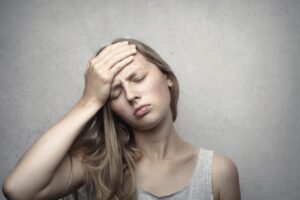
Dear friends, headache is one of the most common health issues that can concern a person (adults and children) in their daily life and almost everyone has experienced, at some point, this annoying sensation. However, where it turns into a real pathological condition is when the frequency and/or intensity of the discomfort exceeds certain limits.
Frequent and/or severe headache can be a symptom of another underlying disease (secondary headaches) of greater or lesser severity and for this reason it is necessary when such a condition develops to be medically assessed by a neurologist or pathologist, together with the necessary imaging and laboratory tests, so that a diagnosis can be made (if possible). There is a large group of headaches that cannot be attributed to any specific disease (idiopathic headaches) which are chronic and periodic in nature. In this group are included:
- Tension headaches: It is the most common case. It is a headache of moderate intensity in the back of the head and neck, on both sides, that is combined with muscle contraction.
- Migraines: Here we usually have pain of strong intensity, often with a pulsating character, which is usually (but not always) located in the forehead and temple on one side of the head and the pain can be preceded by precursory symptoms (yawning, change of mood, neck tension etc.) and/or aura (visual disturbances, numbness, speech disturbances, dizziness, vertigo and rarely hemiplegia). The pain may be aggravated by light, noise, smells, movement, menstruation and other factors.
- Cluster headaches: They are rare and similar to migraines but are characterized by sudden, severe pain in the eye area (sometimes red eye with swelling or drooping of the eyelid) with a reflection to the rest of the head, neck or shoulder. They have a periodic character or even seasonality and periods of complete recession.
In all these cases, many factors can influence (diet, environment, overwork, mental stress, etc.) and some mechanisms have been identified with accompanying biochemical changes or sometimes the involvement of heredity, but the real cause is unknown.
Chronic headaches are an extremely difficult health issue to manage and even more difficult to completely cure. The main chemical drugs used in this effort are analgesics of all kinds (and opioids), non-steroidal anti-inflammatory drugs, some anti-migraine drugs (e.g., ergotamines, triptans, etc.) and in recent years, antidepressants, antihypertensives and antiepileptics have also been used even botox injections, monoclonal antibodies and more. These drugs have helped many patients, in their battle with pain, but they also present significant problems, mainly the side effects over time (sometimes serious), the significant percentage of cases that do not respond and, above all, the fact that it is a sedative and support treatment which rarely leads to a complete and permanent cure. In the alternative therapeutic weapons, we must not forget acupuncture, which has often given remarkable therapeutic results.
Homeopathy has achieved very good results, in a large percentage of cases, in headaches of all categories, on two levels. Firstly, it can, in many cases, dramatically reduce the intensity and frequency of symptoms, minimizing the need to be administrated strong chemical drugs. But even more important is that, in a large number of patients, Homeopathy can achieve a complete and long-term cure without, from one point onward, the need to take any medicine (not even homeopathic)! The homeopathic remedy acts in a mild natural way and without side effects (or allergies) by restoring and activating self-healing mechanisms, which every human organism has, that’s why the therapeutic result is a creation and acquisition of the human organism itself and not of the medicine, resulting in its long-term duration.
Homeopathy, apart from headaches, has also helped a lot in difficult cases of chronic neurological pain such as trigeminal neuralgia, chronic dental neuralgia, post-herpetic neuralgia (chronic pain after shingles), painful neuromuscular spasm of temporomandibular joint (“lock jaw”), etc.
As always, we emphasize that Homeopathy is not a “panacea” and does not cure everything, but it is a very powerful weapon (and at the same time harmless), in the hands of the doctor who knows how to use it, to relieve the pain of his patient.
Vasilios Zinas, MD Internist – homeopathic treatment
18 - DIZZINESS - VERTIGO – TINNITUS (EAR RINGING) AND HOMEOPATHY
Addressing some of the most persistent and tormenting symptoms with an alternative treatment
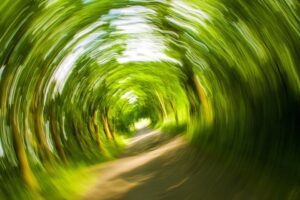
Dear friends, dizziness is a very general term and refers to a mainly subjective condition that is usually described as a feeling of unsteadiness, “heaviness” in the head, weakness and/or a tendency to faint, sometimes accompanied by nausea, blurring of the vision, sweating, anxiety and more. If there is a sense of rotation of space and objects then we talk about vertigo (it is a symptom and not a disease). Several times the above symptoms can be accompanied by a very annoying sensation of noise in the ears (high or low frequency) called tinnitus. There are many people who suffer, even for many years, from persistent dizziness or vertigo and tinnitus resulting in a difficult and sometimes tormenting daily life together with a great limitation of their functionality.
Dizziness and vertigo, with or without tinnitus, can be associated with almost anything to almost nothing! Every person may feel such a sensation at some point in their life. If it is something mild, rare and transient it is usually not a cause for concern but if it is severe and/or frequent then it requires careful medical investigation. The diagnostic protocol for these symptoms is very long because they may be related to the central or peripheral nervous system, cardiovascular system, ears, eyes, neck, stomach, abuse (alcohol or psychotropic or other toxic substances), some chemical drugs even with psychological causes and for this reason many medical specialties are involved such as neurologist, cardiologist, otolaryngologist, orthopedist and even psychiatrist. Unfortunately, or fortunately, in quite a large percentage of cases, no clear diagnosis is obtained despite the multitude of medical tests and laboratory and imaging tests.

The basic treatment for the aforementioned health issues is primarily based on the treatment of the underlying disease (if any is found) and the use of drugs such as antiemetics, non-steroidal anti-inflammatory drugs, corticosteroids, circulatory system drugs and even anxiolytics or antidepressants or even surgery in some cases. These interventions have helped a number of patients but, in addition to any side effects of the chemical drugs and other risks, there is a significant percentage of cases with inadequate response and symptoms that often persist over time. Physical therapy, chiropractic, acupuncture and sometimes psychotherapy can have positive results.
Homeopathy has given very good results in quite a large percentage of cases, even in some difficult ones that have not responded to other treatments. The homeopathic remedy works in a mild natural way and without any side effects, by activating the body’s own self-healing mechanisms that restore the homeostasis of the system and treating the central causative mechanism and not just the symptom. For this reason, the result of a successful homeopathic treatment (if it has been completed correctly), tends to be quite stable and long-lasting, because it is a creation and acquisition of the human organism itself and not strictly of the medicine. Homeopathy, due to its holistic nature, sees each person as a whole and is therefore interested in all aspects of their health, physical and mental, because it believes that there is an interaction between them. With this logic, homeopathic remedy helps the body to function better in general and that’s why, within the same treatment, improvements can also be seen in other health issues, physical or mental, in addition to the reason for the patient’s visit.
Concluding this brief analysis, we should say, once again, that Homeopathy is not a “panacea” and does not cure everything, but it is always a very valuable method of alternative treatment with high success rates, even in difficult cases that have not responded to other interventions, and above all with absolute safety for the patient.
Vasilios Zinas, MD Internist – homeopathic treatment
19 - OBESITY - EMACIATION OR EATING DISORDERS (BULIMIA - ANOREXIA) AND HOMEOPATHY

OBESITY – EMACIATION OR EATING DISORDERS (BULIMIA – ANOREXIA) AND HOMEOPATHY
Problems of our nutrition and an alternative approach to their solution
Dear friends, the topic of nutrition is a very large chapter of our life, which affects it and is also affected by it. Countless studies have been done and thousands of volumes have been written on this issue and it is certainly difficult to exhaust it in this short article, but I will try to give a condensed picture and mainly the potential of Homeopathy to help in this direction.
Obesity is a condition of the human body characterized by excessive accumulation of fat with possible negative health effects. The basic diagnostic criterion of the body’s nutrition level, used worldwide, is the body mass index (BMI) which is obtained by dividing a person’s weight by the square root of their height. The normal body weight is with a BMI of 20 to 25 and above 25 we have overweight people while as it increases it defines different degrees of obesity.
The problem of obesity is literally sweeping humanity today! It is estimated that one in two people (adults and children) is overweight or obese and this is related to many factors such as diet, sedentary lifestyle, possible underlying diseases (e.g., endocrinological problems, etc.), heredity even the social reality that somebody experiences in combination with his mental state and others. From all of the above there are two things that, in my opinion, should be primarily investigated in an obese person. First is the body’s metabolism (mainly the functioning of the thyroid but also other glands), especially in cases where someone states (and it is true) that “I eat a little and gain weight or I don’t lose”. Second and even more important, is his psychological state. When someone doesn’t feel well mentally, he may feel better by eating something tasty, but this improvement is temporary and when the bad mood comes back, he eats something again and the weight goes up (bulimia). So, food becomes a substitute for joy in a constant search with no way out! Even in the case of diagnosed metabolic problems, the participation of the mental factor cannot be ruled out, which in the final analysis may, sometimes, be more important!
But what can be done to deal with obesity? In the case of endocrine dysfunction, it is understood that the restorationοn of the problem with the relevant treatment (e.g., administration of thyroxine) will help. It is clear that a proper nutritional plan is also essential. There are many diets, with different ways of thinking, and the question “which diet is the best?” often comes up. The answer is that there is no “best diet”, but the most suitable one for that particular person. Every person is unique and special and therefore certain foods (or supplements) and ways of eating may or may not suit it. So, in my opinion, the basic and simple principle is that we should eat what we like (it’s important to like what we eat) and we also understand that it doesn’t bother us and we shouldn’t eat what we don’t like (even if it is suggested by someone as beneficial) or we understand that it bothers us. Other simple general principles (for adults) are the following:
- As a rule, we avoid extreme diets that aim for the, initially impressive, rapid weight loss because they often strain the body (sometimes with health risks) and rarely lead to permanent results. Prolonged “hard” hypocaloric diets several times slow down the metabolism of the body and from one point on, even with great effort, not a single gram is lost!
- We eat a rich breakfast (even if it has enough calories), because enhances the body’s metabolism and we establish a single main meal, before 18.00 in the afternoon, while we eat something light in the evening.
- Since we generally have a careful diet, in quantity and quality, we can have a very rich meal at rare intervals and really eat whatever we want. This, in addition to removing the feeling of deprivation, can also speed up the metabolism of the body.
- Any kind of diet must be accompanied by physical exercise, not necessarily “hard”, but at least increased mobility of all kinds.
As we said before, there are no absolute rules and everyone follows what works best for their own body as long as it is not at risk.
Underweight is excessively low body weight (BMI <20) where, in addition to a low body fat percentage, loss of muscle mass may also be involved. A large weight loss requires special attention because it can hide a physical or mental illness. In these cases, a very careful medical investigation along with relevant laboratory and imaging tests is needed. If the existence of an organic disease is ruled out, the possibility of anorexia nervosa should be considered, which is a mental illness that in its severe form can become life-threatening! Suspicious symptoms for this diagnosis are unjustified phobia about obesity, trying to maintain an excessively low body weight (below the minimum normal for age and height), non-objective self-evaluation of body image with unfavorable self-criticism and denial of acceptance of the problem and in women (whose condition is by far more common, 20/1) there may be a period disorder with amenorrhea (absence of at least three consecutive cycles). In cases of advanced anorexia nervosa, in addition to psychotherapy, pharmaceutical psychiatric treatment may be required, which has helped some patients but (apart from any side effects) unfortunately fails to control the condition in a significant percentage of cases.
Homeopathy has given very good results in the problem of body weight in a large number of cases and in the whole range of eating disorders. Due to its holistic nature, it affects the body as a whole, both physically and mentally. So, it can help a lot to correct the metabolism and favor the right level of fat burning (with a proper diet). Regarding the topic of the correct diet for obesity, we previously gave some very simple advice, but I would like to emphasize that, from my own experience, in most cases when things do not go well, the improper diet is not so much to blame (after all, they have usually been tested many diets) as much as the great difficulty of the particular person to mentally support the effort. Homeopathy has a very favorable effect on the restoration of a good mental state and balance and thus very often, in a spontaneous way and without oppression, one can properly regulate his eating habits. For the same reason, it has helped in several cases with the very difficult problem of anorexia nervosa, having prevented (especially in the initial stages) its dangerous evolution. The homeopathic remedy acts in a mild natural way and without side effects or addiction by mobilizing the body’s own psychosomatic self-balancing and self-healing mechanisms.
Homeopathy, as we have said before, has limits and does not cure everything, but it can give excellent results even in difficult cases with absolute safety for the patient.
Vasilios Zinas, MD Internist – homeopathic treatment
20 - "LACK OF ENERGY" OR CHRONIC FATIGUE SYNDROME AND HOMEOPATHY
A strange condition and an alternative treatment

Dear friends, in today’s social reality and with the “crazy” pace of everyday life, the lack of energy and the feeling of fatigue is a very common situation and complaint of many people. The constant need for more endurance and efficiency leads to the use, and often abuse, of caffeine and other stimulants that have only a temporary effect because they do not provide any kind of “energy” to the body but simply completely “drain” its last reserves. The result is that when this energy reserve of the human organism is exhausted, the phenomenon of the “squeezed lemon” occurs, which, no matter how much someone squeezes it, from one point onward, not even a drop of juice comes out! Many try to find a solution by consuming fortified doses of vitamins, a practice which is however completely misunderstood. Vitamins help only when their deficiency is compensated and in no way are they a kind of “doping” that gives more energy (on the contrary, some vitamins in overdose can create health problems). “Energy exhaustion” will typically be encountered in hard-working adults with very demanding goals, even in athletes with a heavy training schedule or in teenagers in a very intense learning effort ahead of exams. Also, such a situation can occur due to insufficient nutrition or in recovery from an illness or even after a strong mental shock or prolonged emotional stress.
In some cases, this “lack of energy” can develop (sometimes it occurs suddenly) into a state of “deep exhaustion” with a very strong feeling of fatigue and with specific characteristics. One characteristic is that one can get tired of activities that were previously tolerated without any problems. Various symptoms may also appear after a degree of physical or mental fatigue that previously did not cause any discomfort. In addition, sleep of sufficient duration may not be particularly restful and/or there may be a feeling of permanent sleepiness and drowsiness. If the above is prolonged for more than 6 months then there is probably the so-called “chronic fatigue syndrome”. In this condition there can also be difficulty of concentrating and/or in memory and (especially when standing) weakness, dizziness and a tendency to faint. Muscle and joint pain, shortness of breath, chills and/or night sweats, irritable bowel, feeling like to have a “common cold” or irregular heartbeat, and more other symptoms may be present. It is understood that all of the above could possibly be linked to some underlying disease, of greater or lesser severity, for this reason the diagnosis of chronic fatigue syndrome is established after a full medical investigation with the relevant laboratory and imaging tests has been done, so they have been excluded other pathologies. In fact, chronic fatigue syndrome is a diagnosis by exclusion because there is no special test that proves it. This strange and dark condition, apart from being truly tormenting, in severe cases can destroy a person’s functionality and render him incapable of work and social life.
The causes of chronic fatigue syndrome are, to date, largely unknown. Many factors seem to have something to do with this particularly complex problem, such as endocrine and metabolic dysfunctions, infections, neurological and immunological disorders and even mental causes.
There is, until now, no effective medication for the cure of chronic fatigue syndrome, and rest along with special diet and supplements do not seem to help in a large percentage of cases. Psychotherapy (of various directions) has helped in some cases but in general the results are rather poor.
Homeopathy is a natural treatment that can give excellent results in the energetic restoration of a damaged organism, in workers, students, athletes and people recovering from an illness, improving their functionality and protecting their health. It also has interesting results in several difficult cases with the very severe form of chronic fatigue syndrome described earlier. The homeopathic remedy acts in a mild holistic way, without side effects, activating the body’s own self-regulation and self-healing mechanisms on many levels physically and mentally.
Homeopathy, as we have said before, has limits and does not cure everything, but it can give very good results even in difficult cases with absolute safety for the patient.
Vasilios Zinas, MD Internist – Homeopathic therapy
21 - GERIATRICS AND HOMEOPATHY
Supporting human health during old age in a different way
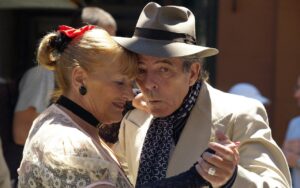
Dear friends, we all know that the average lifespan of modern man has increased significantly and combined with the decline in the birth rate, in the “developed world,” has led to a large increase in the percentage of “elderly” people in the general population. But beyond any demographic perspective and above all, this age group includes people we love and all of us, one day, will experience its very special characteristics!
The concept of old age is very relative and difficult to define precisely. Even today it has not been clarified whether it arises as a result of cellular damage or genetic programming or other factors. Old age is characterized by some developments such as a decline in muscle mass and endurance, decrease in sensory acuity (e.g., vision, hearing, etc.) and reproductive capacity, sometimes together with impairment of mental function and increased incidence of pathological conditions of the human organism. In any case the rate and degree at which the above referred occur may vary greatly from person to person and for this reason, somebody’s biological age (which reflects the actual state of his organism) may be very significantly different from his chronological age. This seems to depend on many factors such as heredity, diet, lifestyle, psychological state and others probably unknown.
There is still no “medicine” for old age. Many healers promise various “miracle” treatments with, as a rule, poor results while some of them border on fraud. From my own medical experience, the absolutely most important thing that ensures longevity and most importantly a high quality of life, is a good inner emotional balance, which comes through the exchange of love, and the existence of a true purpose in life! Apart from the previous ones, the analysis of which goes beyond the limits of this short article, a very important role is played by a balanced diet without chemical additives, regular physical and mental exercise, adequate rest and avoiding unnecessary abuses. An important and rather underestimated factor is a good sex life! It is a myth that in older ages the sexual desire and the ability for sexual activity are absent. Of course, it may not be the same at seventy as at twenty but that is far from being inactive and quite often a 65 years old man in good health condition can be more sexually active than a 40 years old man in poor general condition! Here we must emphasize that older age often becomes a “scapegoat” and is “burdened” with problems (physical, psychological and sexual) that are not belonging to it as an easy and sometimes convenient explanation.
Another very basic issue concerning old age is the use of many chemical drugs and the gradual “medicalization” of the lives of too many elderly people. So many times, they end up to a situation of living “ruins” who live dependent on an enormous number of chemical medications! No one disputes the great contribution of “conventional” medicine to human health, but there are subtle points and limits that need increased attention and this is not what Homeopathy says, but modern geriatrics. The body of the elderly, and even more so of people of very advanced age, has particularities and complex balances (just like children), and requires a lot of thought about whether to give a chemical medicine and in what dosage. Also, we must always remember that we are not treating individual organs of the body nor the lab papers but the human organism as a whole and that’s why the easy administration of strong chemical drugs in full dosage to treat minor symptoms or laboratory abnormalities may have a good “local” effect but to make the elderly’s health worse overall. Another, in my opinion, wrong practice is the “easy” administration of psychotropic drugs, such as anxiolytics and antidepressants, which may give some initially positive results but then, in a significant percentage of cases, the elderly become mentally disorganized on a much deeper level. So, we have, unfortunately, the phenomenon of starting a treatment for conditions of some melancholia or a degree of anxiety and after a period of improvement the condition develops into an irreversible dementia. It is much preferable (but also more difficult) to see the real needs of the elderly (e.g., to live in an environment with love and support) than to simply suppress the symptoms. It is understood that in any case the medical investigation of an incident together with the necessary laboratory and imaging tests is necessary and imperative.
Homeopathy is, by its nature, holistic and gentle and aims to restore delicate psychosomatic balances of the elderly patient. On this basis, he places particular emphasis on functional ability and quality of life, achieving a high percentage of good results in a multitude of physical and mental problems of old age. The homeopathic remedy works in a natural way by mobilizing the body’s own self-balancing and self-healing mechanisms without ever having side effects or harmful interactions, with any kind of other medicines, or addiction phenomena. Of course, Homeopathy does not cure everything and always, nor can it promise immortality, but it can help the elderly to get relief from many tormenting situations with absolute safety and, most importantly, to be vigorous and creative for many years by actively participating in social life.
Vasilios Zinas, MD Internist – homeopathic treatment
22 - PREVENTIVE MEDICINE AND HOMEOPATHY
Preventing disease and ensuring a high level of psychosomatic health and well-being through a natural method

Dear friends, prevention was, is and will be the most perfect form of medicine that can benefit a person! The great Hippocrates himself had said that “prevention is the best cure” and from then until now it has been constantly verified! As this subject is truly gigantic and cannot be exhausted in the following small analysis, we will simply try to give a condensed general picture of the subject and an idea of the great possibilities of Homeopathy on it.
The concept of prevention, in the matter of human health, is really very broad and in essence it is primarily a culture and a way of life! Many people, when referring to prevention, focus mainly on preventive laboratory and imaging tests (“secondary prevention”) and it is truly a great conquest of modern medicine, having saved many until today. Screening (with the right criteria and protocols) through blood tests, X-ray, ultrasound, gastroscopy, colonoscopy, fatigue test, mammography, pap test and others is really valuable. Of course, in reality, prevention is something more than early diagnosis because when the problem is detected it has already been created!
“Primal” and “primordial” prevention is something different. This means preventing the appearance of the problem before it even arises (!) by preventing and not allowing the conditions to arise that will lead the human organism to the disease. Based on modern views, which I personally support, the psychosomatic history and influences of a child begin very early, not even from birth but even during pregnancy (!) and even from conception (!!). The analysis of heredity (as determined by genetic or even epigenetic factors) is beyond the scope of this short article, as is the influence of the social environment (see my article “Homeopathy and social being”), but future parents can put the foundations for the good health of their future child from a very early point. Starting from a normal conception (which for many reasons is preferable to in vitro fertilization, unless there is no other way) and protecting the psychosomatic health of the pregnant woman by avoiding various abuses and strong mental stress. Normal delivery (as long as it is safely possible) and adequate breastfeeding are always very beneficial to the health of the child. In general, the good psychosomatic health of the future parents together with their proper information and education determine to a large extent the development of their child.
But since, unfortunately (!), we do not live in an ideal world and we all receive negative effects (more or less depending on the random circumstances of our lives), it is very important to be able to recognize in time (we and/or our doctor) the factors that they threaten to destabilize our health and we can prevent this by canceling them as far as possible (“primary prevention”). There are many tactics that can contribute to the prevention of the disease such as a proper balanced diet (with good quality food without chemical additives), avoiding a polluted toxic environment, regular physical exercise, avoiding unnecessary abuses, a good sex life and, perhaps most of all the above, a good mental balance. This last one is another huge and very “painful” issue and epigrammatically we will say that in the critical years of childhood, human emotional warmth and love together with the feeling of security that a child should receive, largely determines the course of his health even as an adult! In general, the absolute, in my opinion, shield of a person’s mental and by extension physical health, is the exchange of selfless love and the existence of a true purpose in life!
From the moment the disease appears, the “last frontier” of prevention is the effort to reduce, as much as possible, its psychosomatic consequences for the body and the possibility that it will lead to subsequent and sometimes worse pathologies (“tertiary prevention”) as well as the attempt to avoid possible side-effects and damages from excessive or unnecessary medical treatment that the patient will receive for his problem (“quaternary prevention”).
Homeopathy in all previous stages of prevention can give excellent results. In principle, due to its holistic nature it helps, at the same time, in orderly functioning of the body but also in maintaining a good mental balance compensating, to a significant extent, the damages of everyday life as well as of special circumstances (e.g., an overwork or a mental shock), before lead to pathological conditions. Once a disease develops, the homeopathic remedy acts in a mild natural way without any side effects, negative interactions or addiction, treating in a gentle way and preventing any harmful effects of chemical medicines that were not finally needed. The homeopathic medicine does not simply treat the symptoms, but deeply restores the balance and homeostasis of the organism, leading to more stable therapeutic results over time and preventing the appearance of more and more problems in different points. Correct Homeopathy has wider implications by favoring a better interaction of healthy psychosomatic people at family and social level (see my aforementioned article).
Homeopathy is clearly not a “panacea” and cannot (unfortunately) defeat time or create the superman. All human organisms, even the strongest and of the best quality , have limits which, if crossed, are created problems. However, we want these limits to be high enough and if and when they are exceeded, recovery to be occurred. It’s normal to feel tired if overworked or to be sad after a bad event, what we don’t want is a persistent and unexplained exhaustion or a long-term depression that mortgages health and quality of life. Homeopathy has decisively helped in this direction and with absolute safety, millions of people who trusted it all over the world.
Vasilios Zinas, MD Internist – homeopathic treatment
